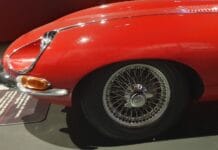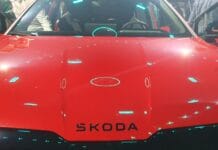Pretty much all new cars nowadays have anti-lock brakes (ABS). In fact, it isn’t even a new technology – ABS has been around since the 1970’s. Most cars on the road have it. And yet, Formula 1 cars don’t have this rather simple piece of tech. Do you want to know why?

In every Formula 1 race there is someone who goes too deep into a corner and ends up locking his wheels. If the car is sliding for too long flat spots are grinded onto its tires, which then cause vibrations and, in many cases, a premature visit to the pits. ABS would help avoiding situations like this and it would also make F1 cars just that little bit safer.
ABS first appeared in mass production cars in 1971, when Chrysler put it into its Imperial. Now ABS comes as standard in pretty much all new cars, trucks and even motorcycles. It is also fairly common in all kinds of racing. And yet, Formula 1 drivers cannot enjoy the benefits of this readily available technology.
In fact, historically there were some Formula 1 cars that did have ABS. It was actually only banned in 1994, along other electronic driver’s aids such as active suspension, launch control and stability control. Obviously, these technologies would help F1 cars achieve faster lap times and would make them a lot safer, but they are unlikely to make a comeback in the foreseeable future.

Motivation to ban ABS and other aforementioned technologies was quite simple – the organization wanted to manage the growing price of Formula 1 cars. Yes, ABS is very cheap now, but if constructors would have been allowed to play with it, they would have came up with a super advanced version of ABS that would be way more complicated and way more expensive.
FIA and Formula One wanted to make sure that drivers remain the primary actors on the track. At that time there was already a lot of criticism about Formula 1 becoming a competition of cars and technologies rather than a racing league for drivers. And so some technologies were banned in order to ensure that drivers have to rely solely on their own skills, determination and situational awareness.
Not everyone was happy about the ban. Ayrton Senna said that the 1994 season is going to be littered with crashes just because drivers were losing some of their safety tech. Senna himself was killed in a horrific crash that year, although in his situation electronic driver’s aids wouldn’t have helped a ton.

Ban of the electronic driver’s aids didn’t silence the critics. F1 champion Niki Lauda said in an interview in 2002 that a well-trained monkey could drive a modern Formula 1 car. On the other hand, if ABS, stability control and launch control were allowed, Formula 1 would be even less about skill and more about technology. Cars with locked up wheels is a good reminder of that.




